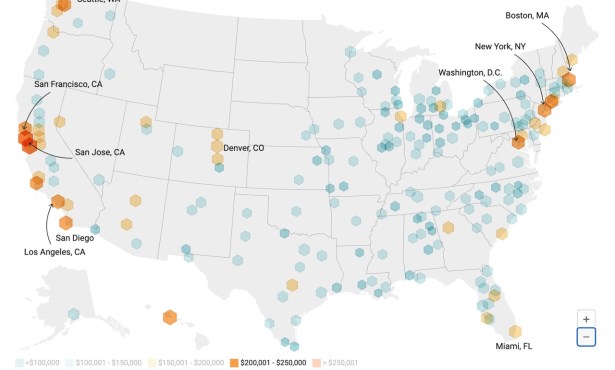Saying Goodbye
Tips for Coping With the Loss of a Pet

It is normal to grieve over the death of a companion animal. Our feelings toward pets are so special that experts have a term for the relationship; the human-companion animal bond. When this bond is severed, the sense of loss can be overwhelming. Our society does not always offer a grieving pet owner a great deal of sympathy. Even a close friend may comment, “It’s only a cat; you can always get another one.” Such a reaction would be heartless given the loss of a human friend or family member, but not everyone sees a companion animal in the same light.
How we feel: When a person dies, friends and relatives pay their respects at the family home or funeral parlor. There is a gathering at which sorrow and tears are accepted, even expected. Afterwards, during the mourning period, friends and relatives assist and comfort grieving family members until their grief subsides and new routines develop. When an animal dies, there is no such social ritual to formalize the death. Still, the loss affects our emotions and all the more so if the animal was an integral part of the family. These feelings usually progress through several stages. Recognizing them can help us cope with the grief we feel.
Stage 1. Denial: Denial is the initial response of many pet owners when confronted with a companion animal’s terminal condition or death. This rejection seems to be the mind’s buffer against a sharp emotional blow. This stage is especially true for those who experience a sudden, unexpected death of a pet. This is a temporary response that carries us through the first wave of pain.
Stage 2. Bargaining: Many times, faced with impending death, an individual may “bargain” or offer some sacrifice if the loved one can be spared. The hope that he or she might recover can bring reactions such as, “If Rover gets better, I’ll never skip his regular walk,” or “I promise to go to church every week if Whiskers gets better.” Bargaining is an expression of hope that the bad news is reversible.
Stage 3. Anger: Anger can be obvious, as in hostility or aggression. Anger may also turn inward, emerging as guilt. Many veterinarians have heard the classic response, “What happened? I thought you had everything under control and now you’ve killed my dog!” Such outbursts help relieve immediate frustrations, though often at the expense of someone else. More commonly, animal guardians dwell on the past. The number of “If only… ” regrets are endless; “If only I had taken Kitty to the veterinarian a week ago.” Whether true or false, such thoughts do little to relieve anger and are not constructive.
Stage 4. Grief/Depression: This is the stage of true sadness. The animal is gone, along with the guilt and anger, and only emptiness remains. It is normal to display grief when a companion animal dies. It is helpful to recognize that other animal guardians have experienced similar feelings and that you are not alone.
Stage 5. Resolution: As time passes, the distress dissolves as the pet owner remembers the good times, not simply the animal’s passing. This is not to say that you won’t hurt anymore, but you will begin to accept the reality of the loss. Remember that to get to this stage may take months or even years.
These stages of grief may not happen in this exact order. Many people jump around from stage to stage. If you find you are “stuck” in any of these stages and cannot move through your grief, you may want to seek help from a professional guidance counselor. In Santa Barbara, C.A.R.E. Hospital also offers grief counseling. For more information, visit carehospital.org/grief.html.
What you can do about your feelings? The most important thing you can do is be honest about your feelings. Try talking to others who have experienced the same type of loss. Many find comfort in creating a memory book of their pet with favorite stories, pictures, and toys so that their pet will never be forgotten. One website where many grieving pet owners have found help is rainbowsbridge.com. This online community allows grieving pet guardians from all over the world to connect. You can chat live with others, send emails, and there’s a special Monday night candlelight vigil where grieving pet owners come together to share their emotions. You can also set up a virtual memorial for your pet.
If you are a friend of someone who has lost a pet: Many times a grieving pet owner just wants to talk about their pet, so make sure that you are there for them. Send a sympathy card and, if possible, make a donation in memory of your friend’s pet to a local animal shelter. Be sure to follow up after a few weeks or months to see how your friend is doing. Don’t assume that after a few weeks your friend will be “over it”.
Given the joy that our pets bring to us, most of us would choose the temporary grief that we feel after a loss over never having our pets in our lives.
Pet Loss Support Telephone Hotlines:
UC Davis Vet School: 1-800-565-1526
Monday-Friday 6:30-9:30 p.m. PST
College of Veterinary Medicine at Washington State University: 509-335-5704
Monday-Thursday 6:30-9:00 p.m. and Saturday 1-3 p.m. PST
ASPCA Pet Loss Hotline: 1-800-946-4646
24-hour consultation. Enter this pin number on your key pad: 140-7211 and your call will be returned immediately.
Tufts University: 508-839-7966
Monday-Friday 6-9 p.m. EST
Internet Resources:
Association for Pet Loss and Bereavement
Rainbows Bridge Pet Loss Counseling
Lisa Acho Remorenko is the executive director of Animal Adoptions Solutions and can be reached via email at lisa@animaladoptionsolutions.com.


